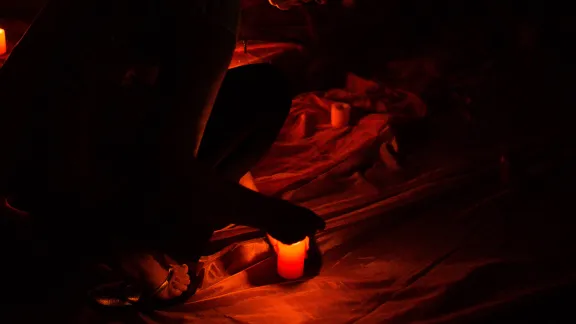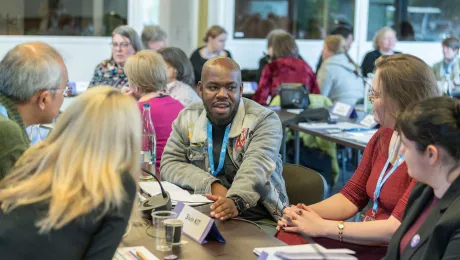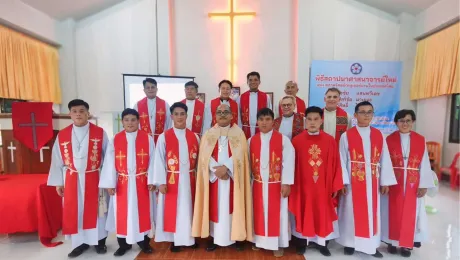
Prayer to overcome violence. Photo: Eugenio Albrecht
“As a church, we cannot remain silent.”
(LWI) - Paraguay has brought into force new measures to curb violence against women and girls, a move the Evangelical Church of the River Plate (IERP) says it supports.
The new law provides comprehensive protection of women against all forms of violence and has increased the punishment for killing a woman or girl, which it describes as femicide, to between 10 to 30 years imprisonment.
At a UN review of the situation of women in Paraguay, last October, the Paraguayan Minister of Women’s Affairs said the importance of the law lay not so much in the punishment of the perpetrator as in the protection it provided for the female victim and her dependents.
Ana María Baiardi told the UN hearing that, among other things, law 5777/16 stipulated there must be one women’s shelter in each of the 17 states of Paraguay, as compared with the two shelters that currently cover the whole country. The act also places greater responsibility on officials to listen to and support women victims of violence and establishes administrative penalties for officials who failed to act appropriately on complaints. The law was enacted at the end of 2016 and brought into effect at the end of last year.
A tool to reduce gender violence
The measure covers a significant legal vacuum. The number of femicides reported in Paraguay last year – 49 – was nearly double that reported in 2015. Almost 13,500 cases of domestic violence were reported last year.
We [must] urgently educate for an equality of gender, for the recognition of the dignity of women and men.
Pastor Mariela Bohl, who serves the Congregation of Santa Rosa of Monday, welcomed the legislation. “Our women, girls, adolescents are being violated and it is necessary that we urgently educate for an equality of gender, for the recognition of the dignity of women and men.
As a church, we cannot remain silent. We can denounce violence and fight it through education. That is why I believe it is necessary to make this law known so that it can be a tool to reduce gender violence,” she said.
Violence against women appears as something normal
Pastor Christian Stephan, who has worked for many years in different communities of the IERP in Paraguay, said violence often began innocuously.
"The great problem of violence against women in Paraguay is that it looks like something absolutely normal. It begins manifesting itself in language, it materializes in attributed roles and day to day treatment and is sadly expressed in the different types of violence that are not even perceived as such.”
The law covers violence perpetrated against pregnant women or during childbirth, and online abuse against women and girls. In addition to access to shelters, it provides for free legal assistance, access counseling for women who have experienced violence. It calls for a standardized system to collect data on gender violence.
Gloria Zapattini, a survivor of gender violence and a member of the Paraguayan women’s association "I believe you", who contributed to the bill that became law, said violence manifests itself in simple attitudes, such as a man telling a woman what to wear, with whom she should talk or whether she could check her mobile phone.
“We think he does it because he loves you, but this is violence, I learned to detect these signs of psychological violence and economic violence, and I took control of my life,” she told UNWomen. Today, many women come to her to seek support and solidarity,
The government is confident this law will reduce gender violence. In addition, it indicated it was planning strategies to eradicate violence in future generations.
The Evangelical Church of the River Plate has been a member of the LWF since 1991. It serves congregations in Uruguay, Paraguay and Argentina.
By the LAC communications network, edited by LWF communications.


